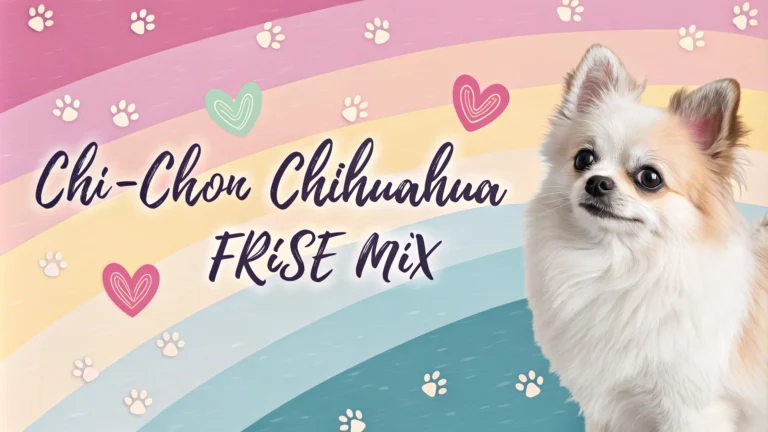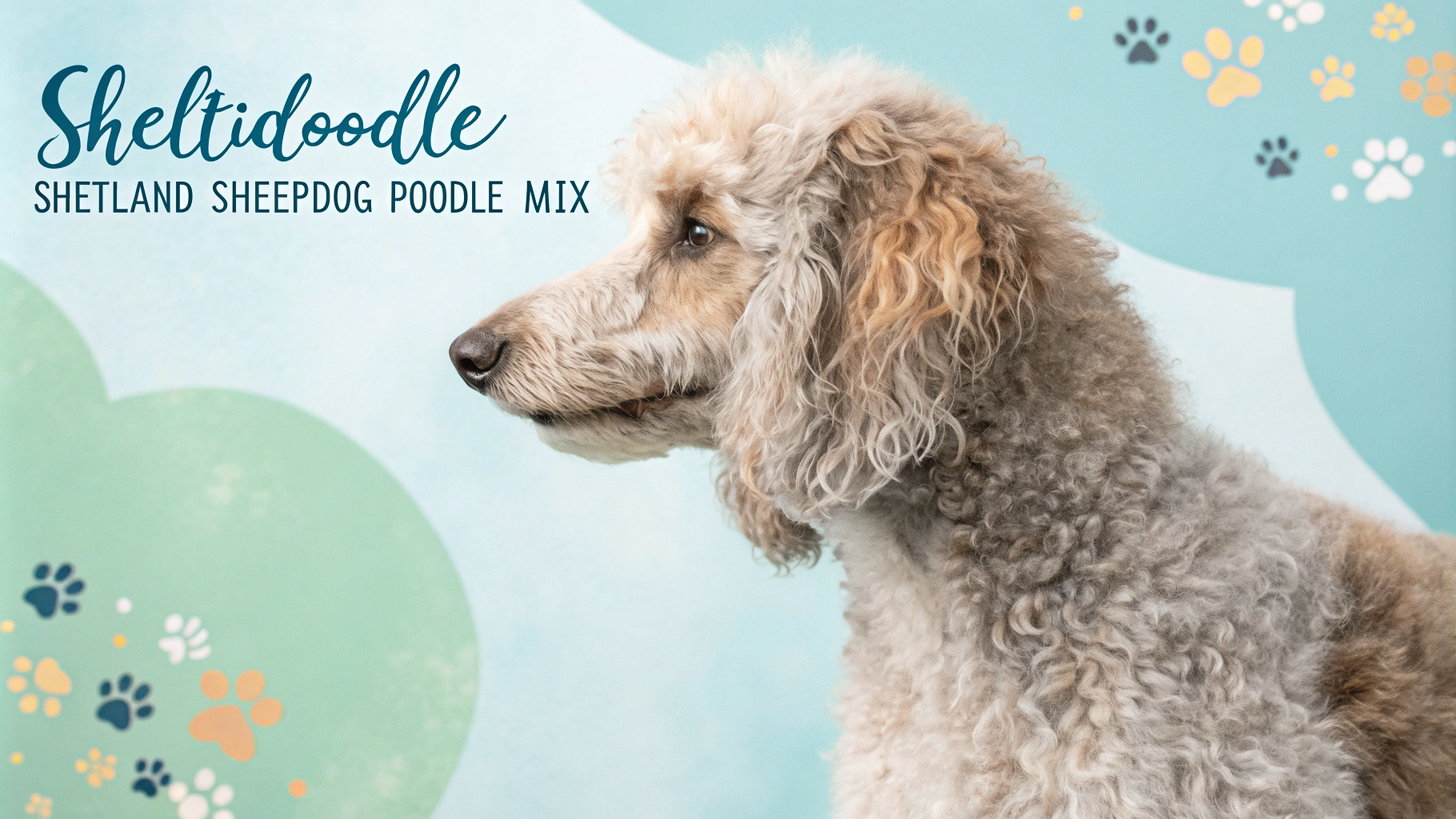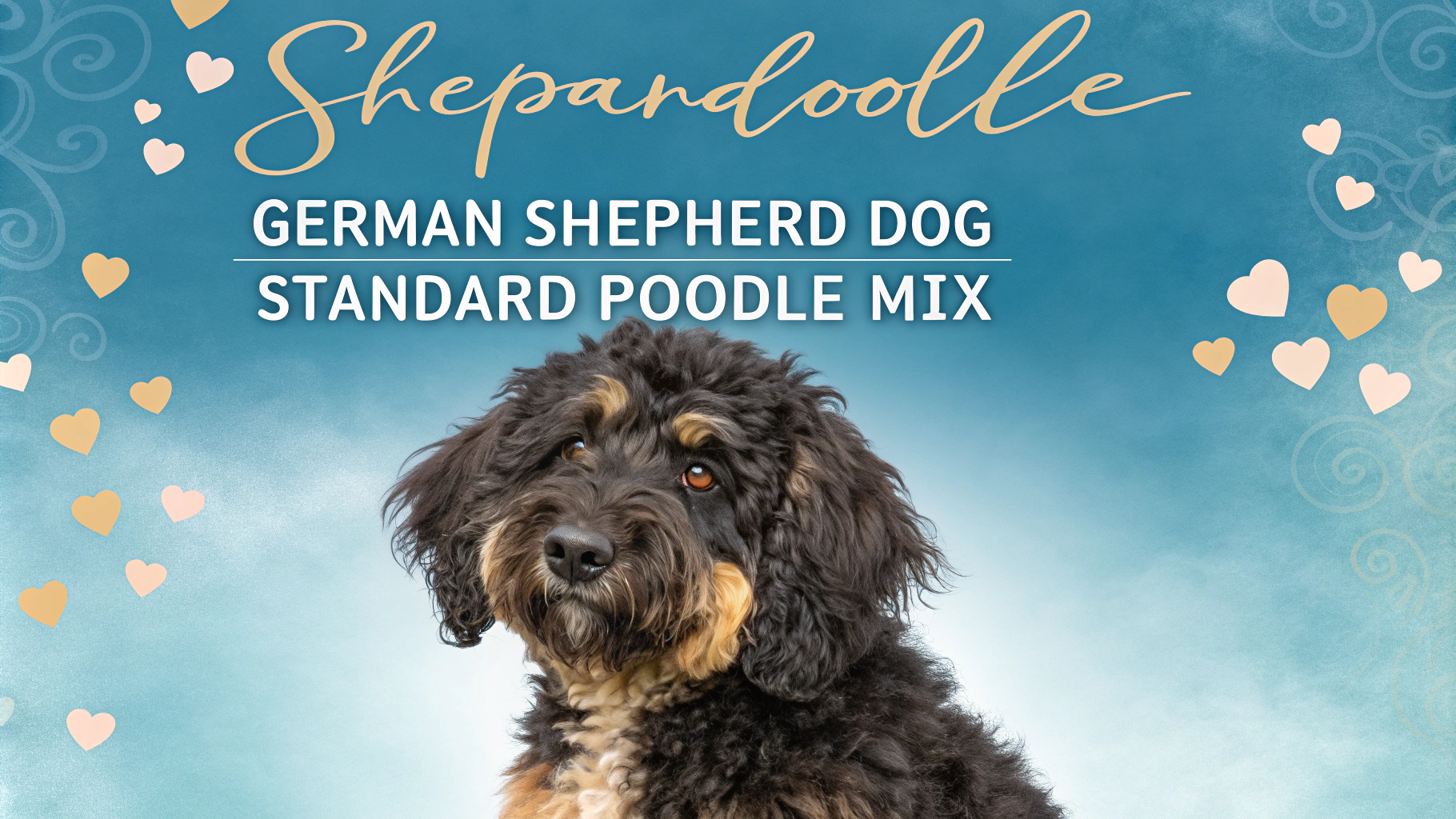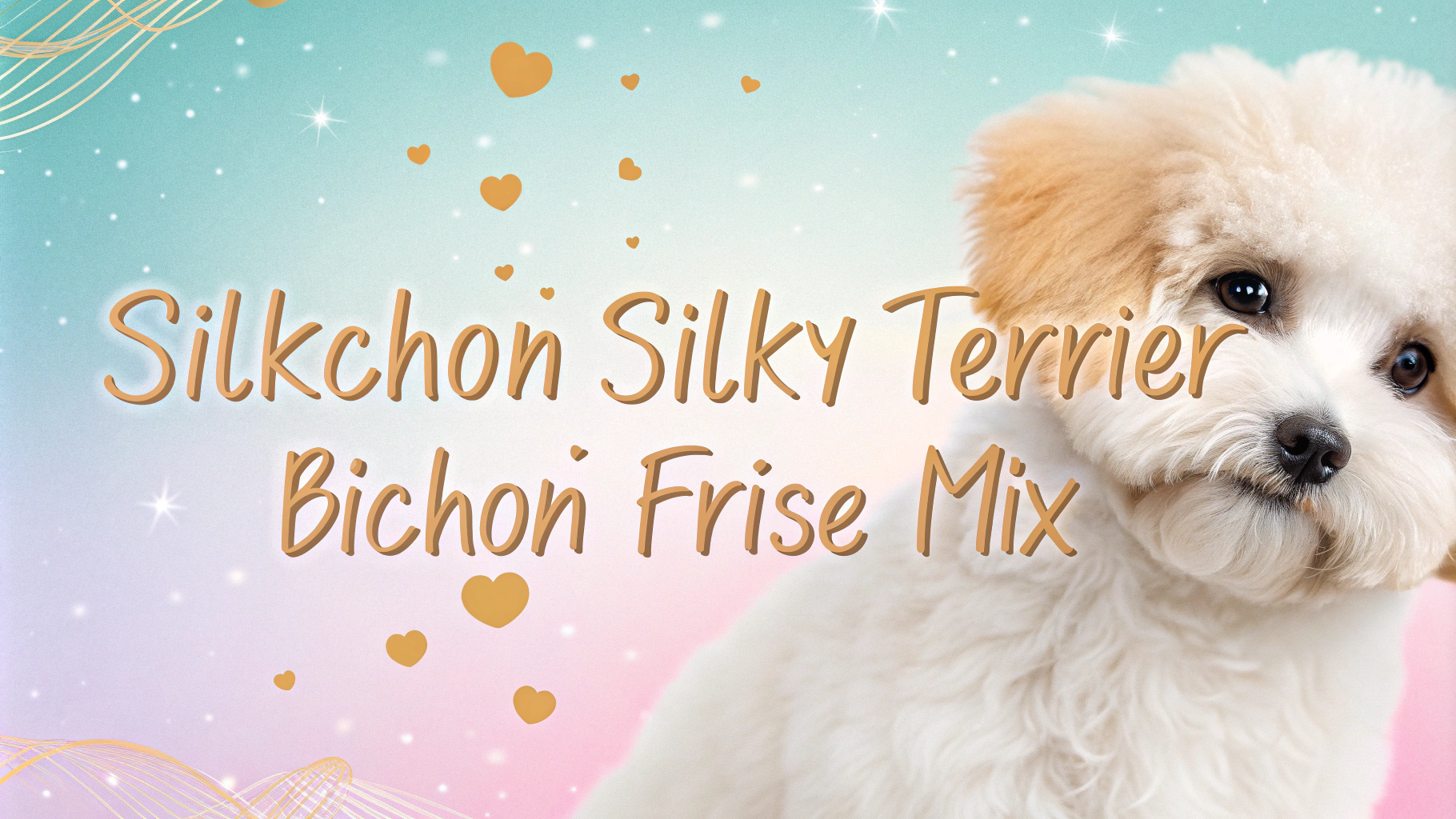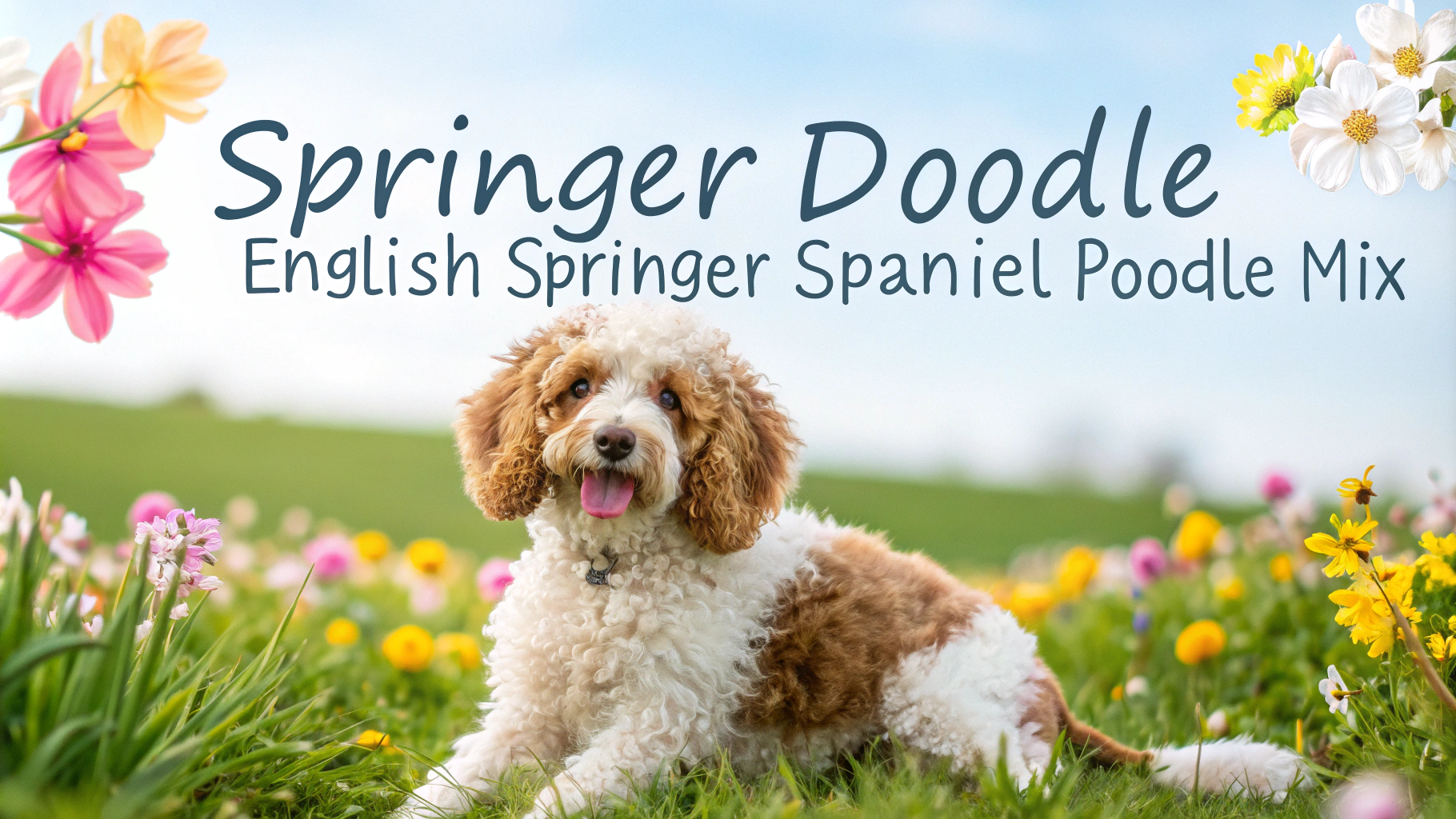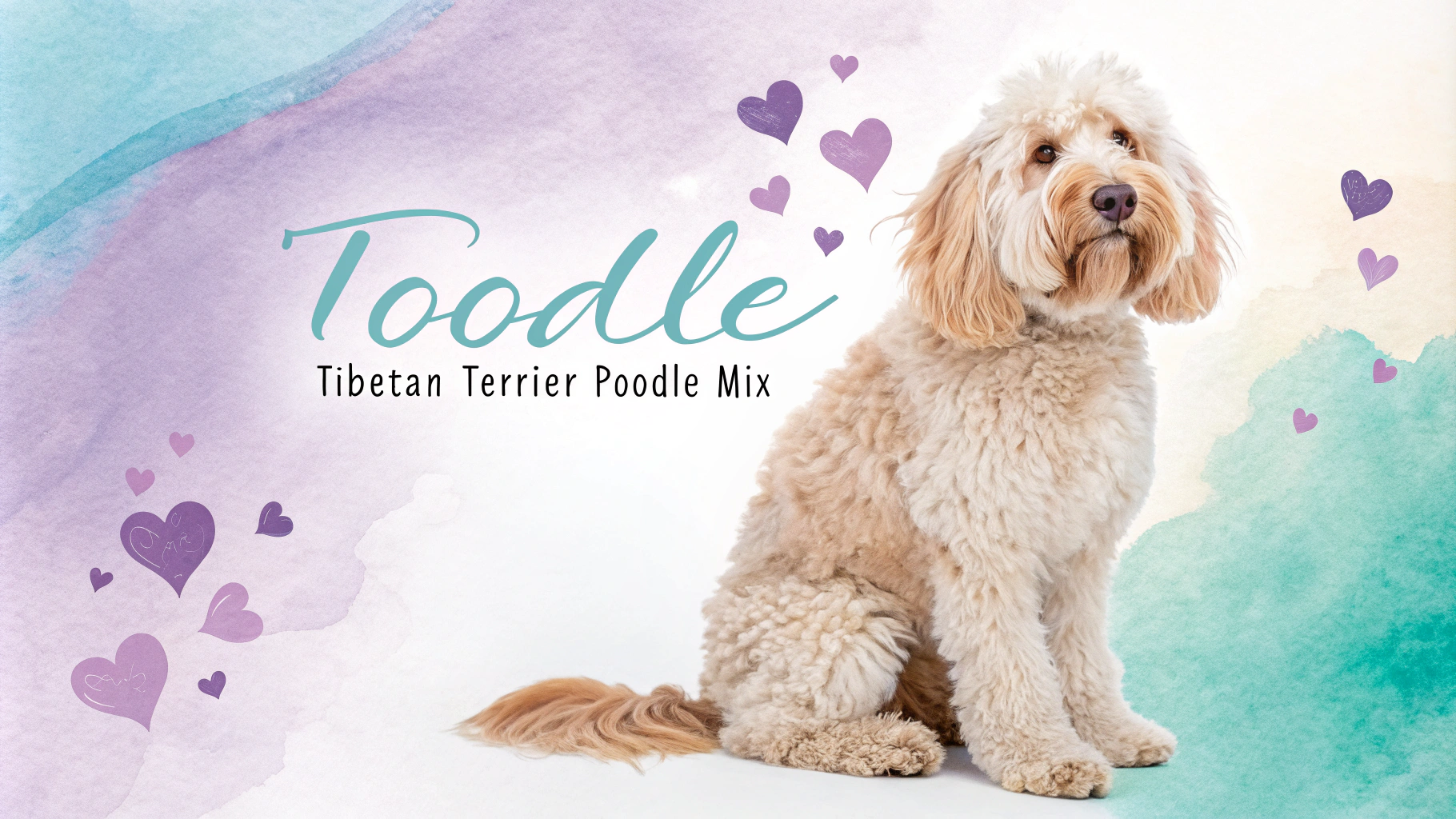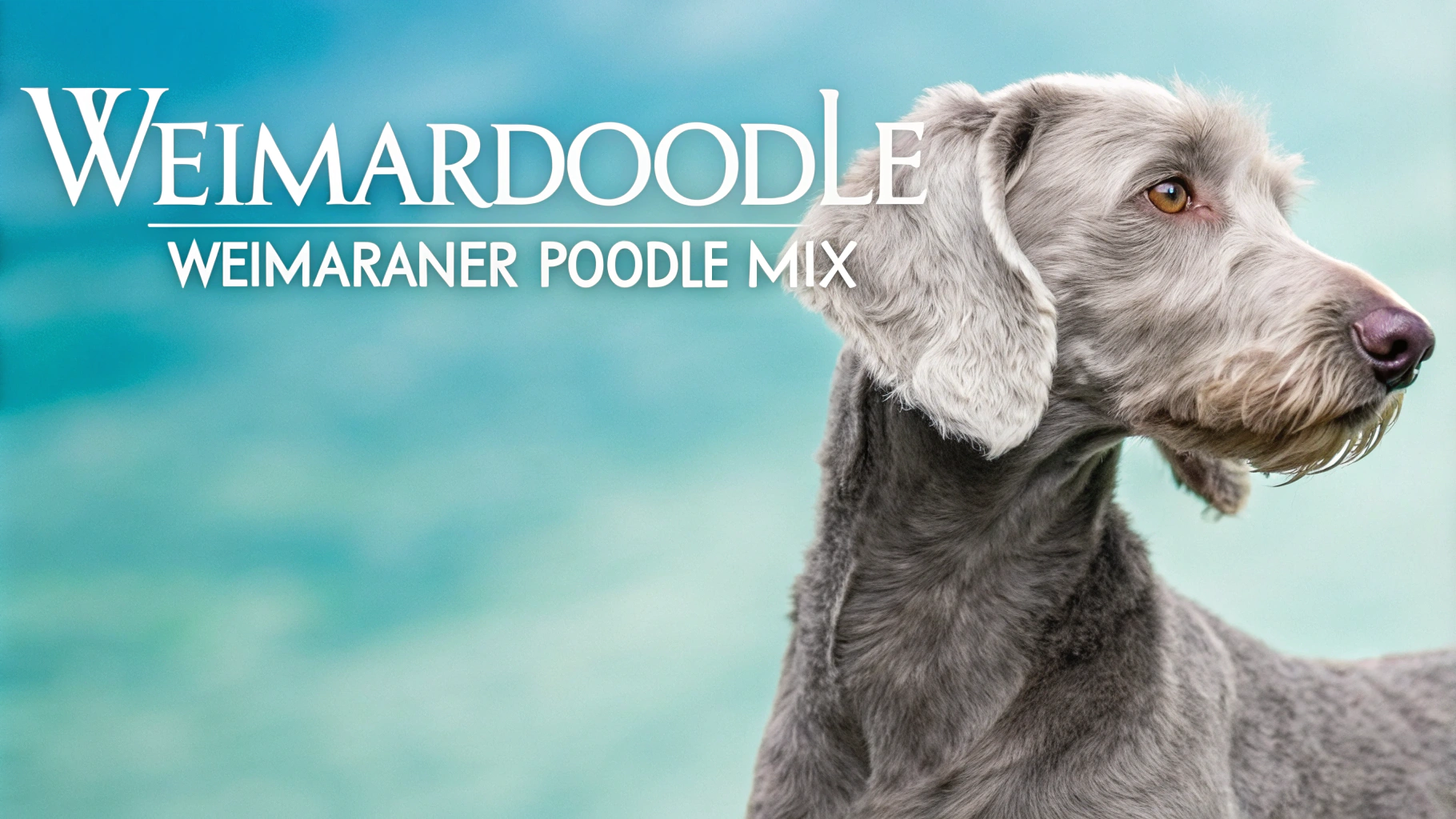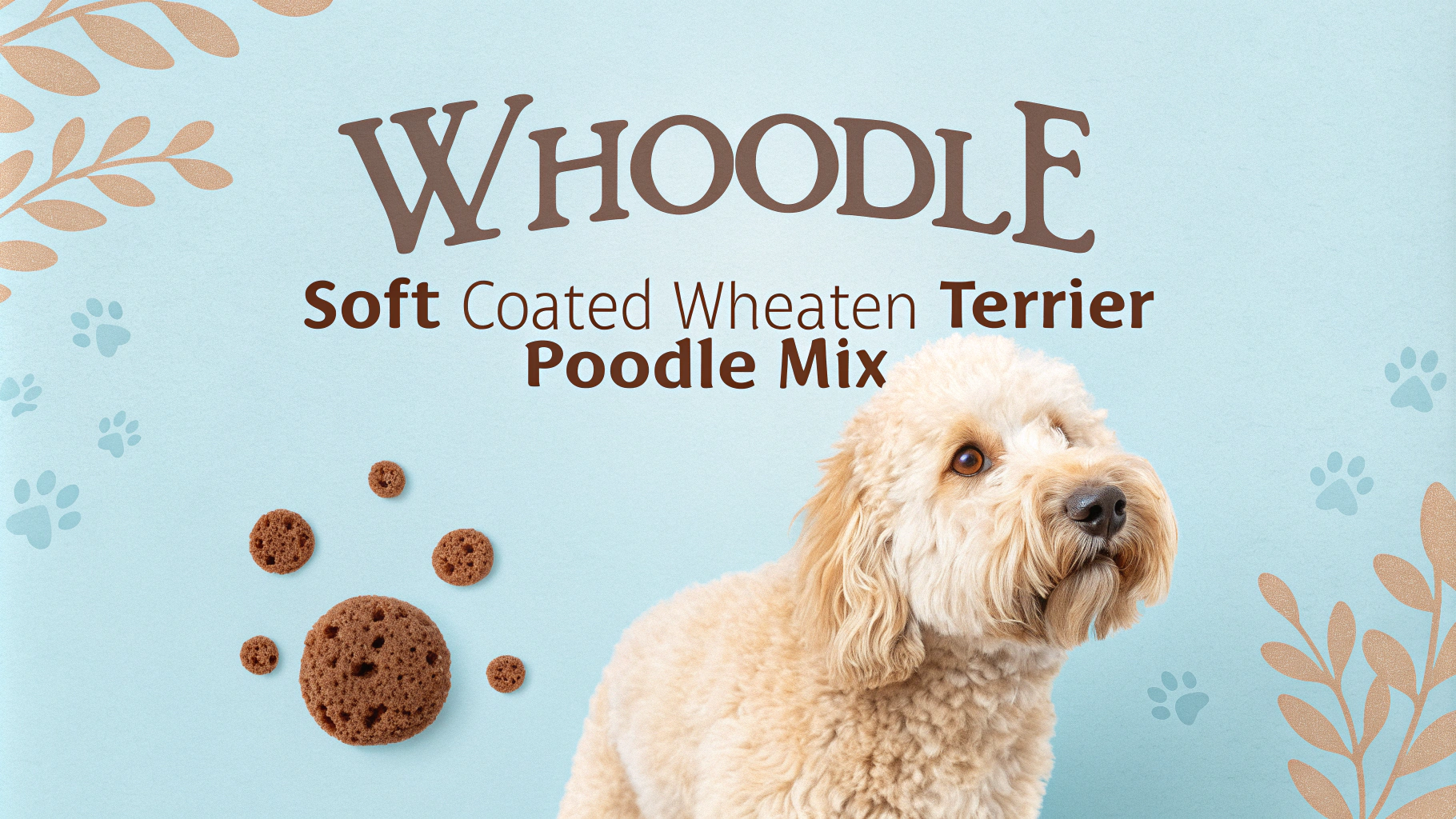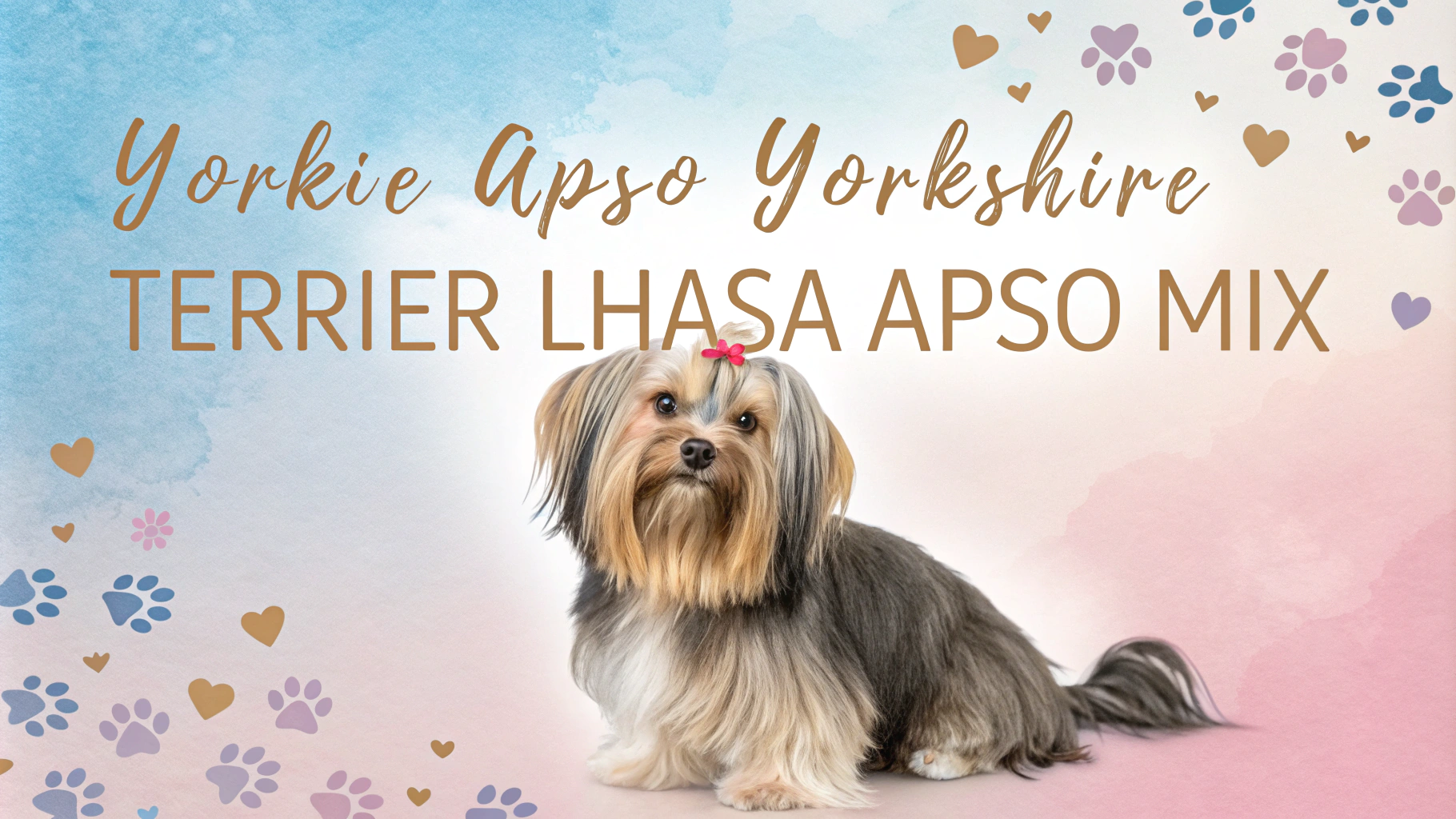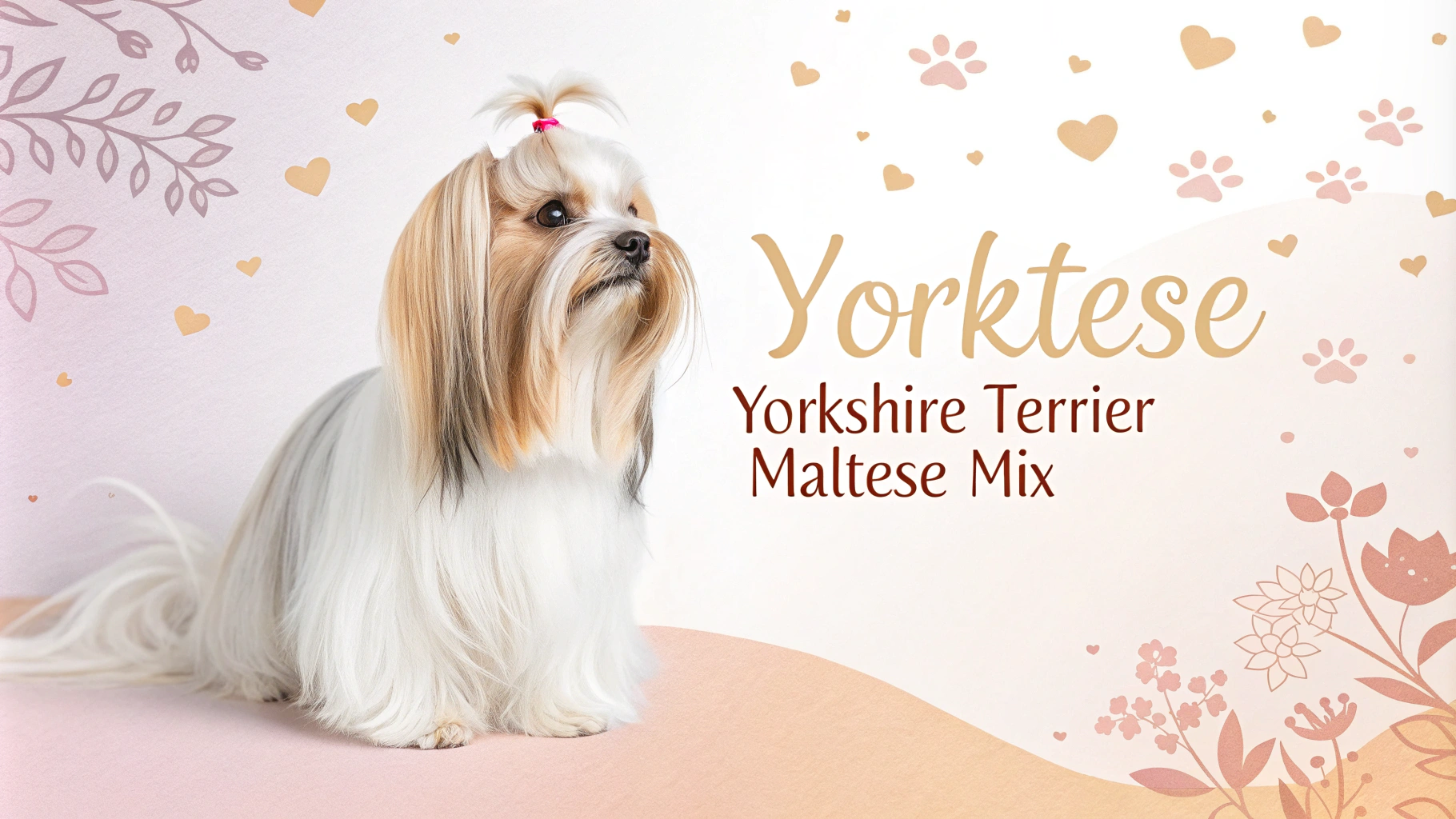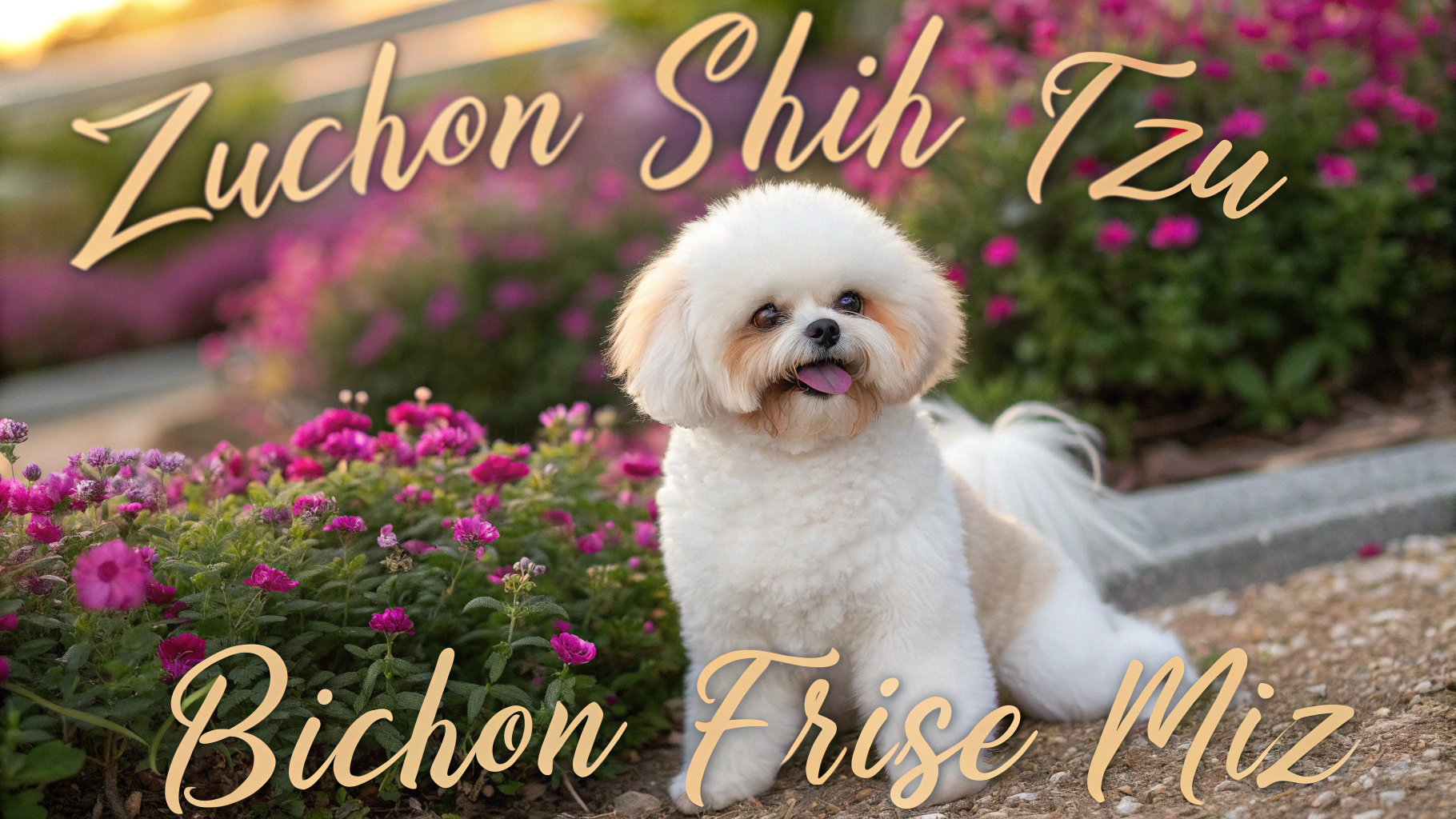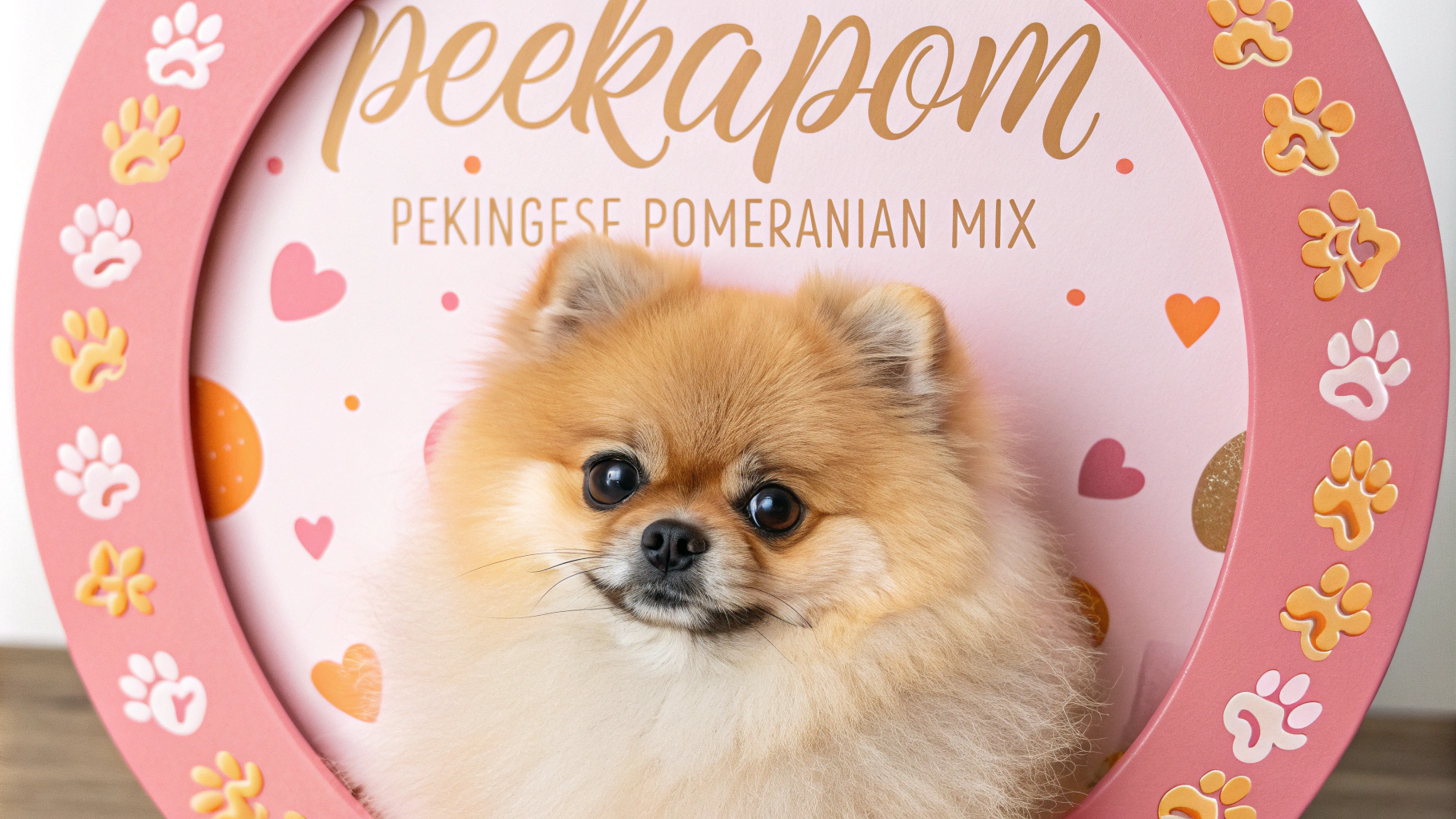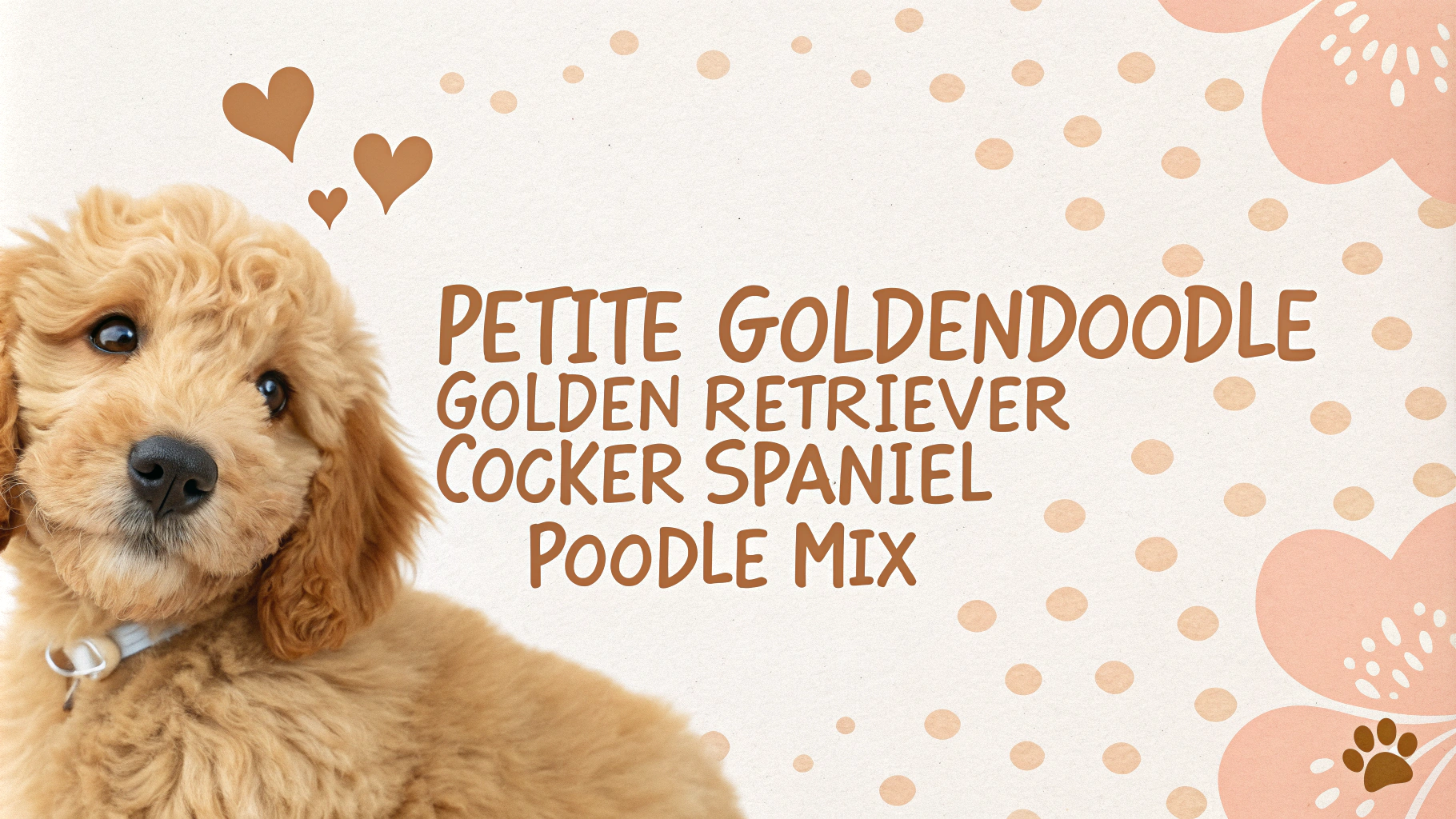The Chi-Chon is a designer dog breed that results from crossing a Chihuahua with a Bichon Frise. This small, affectionate mixed breed combines the feisty personality of the Chihuahua with the friendly, playful nature of the Bichon Frise. Chi-Chons are known for their loving disposition and adaptability, making them excellent companion dogs for various living situations.
Key Facts
- Size: Small (6-15 inches tall, 5-15 pounds)
- Lifespan: 12-15 years
- Coat: Soft, fluffy, and often hypoallergenic
- Colors: Varies, including white, cream, black, brown, and combinations
- Temperament: Affectionate, playful, and intelligent
- Good with: Families, seniors, apartment living
- Exercise needs: Moderate
- Grooming: Regular brushing and occasional professional grooming
Character Traits
Chi-Chons inherit a blend of personality traits from their parent breeds, resulting in a charming and unique companion. These dogs are typically affectionate and devoted to their families, often forming strong bonds with their owners. They can be playful and energetic, enjoying interactive games and short bursts of activity. Chi-Chons are also known for their intelligence, which can make them quick learners but may also lead to a stubborn streak inherited from the Chihuahua side.
While generally friendly, Chi-Chons may inherit the Chihuahua’s tendency to be wary of strangers and protective of their family. Early socialization is crucial to ensure they develop into well-rounded dogs. These mixed breeds often have a big personality in a small package, displaying confidence and sometimes even a bit of sass. They can be excellent watchdogs, alerting their owners to any unusual activity with their sharp bark.
Chi-Chons are typically good with children when properly socialized, but due to their small size, interactions should always be supervised to prevent accidental injury. They often get along well with other pets, especially if raised together. Their adaptable nature makes them suitable for various living situations, from apartments to houses with yards.
History & Origins
The Chi-Chon is a relatively new designer dog breed, likely originating in the United States within the last few decades. Like many designer breeds, the exact origins and date of first breeding are not well-documented. The trend of creating designer dogs gained popularity in the late 20th century, with breeders aiming to combine desirable traits from different purebred dogs.
To understand the Chi-Chon, it’s essential to look at the history of its parent breeds. The Chihuahua is an ancient breed originating in Mexico, with a history dating back to the Mayan civilization. They were named after the Mexican state of Chihuahua and gained popularity in the United States in the early 20th century. The Bichon Frise, on the other hand, has European origins, descending from the Barbet or Water Spaniel. They became popular as companion dogs for French, Spanish, and Italian nobility during the Renaissance.
The Chi-Chon was likely created to combine the Chihuahua’s compact size and loyalty with the Bichon Frise’s friendly nature and hypoallergenic coat. This mix aims to produce a small, affectionate companion dog suitable for various living situations, including apartments and homes with limited space. While not recognized by major kennel clubs as a standardized breed, Chi-Chons have gained popularity among dog enthusiasts seeking a unique and lovable pet.
Health Concerns
The Chi-Chon, like many mixed breeds, can inherit health issues from both parent breeds. Common concerns include:
- Dental problems: Due to their small size, Chi-Chons may be prone to overcrowded teeth and dental issues.
- Patellar luxation: This condition, where the kneecap dislocates, is common in small breeds.
- Eye problems: Inherited from both parent breeds, issues like cataracts or progressive retinal atrophy may occur.
- Hypoglycemia: Small dogs are susceptible to low blood sugar, especially as puppies.
- Heart issues: Some Chi-Chons may inherit heart conditions from their Chihuahua parentage.
Regular veterinary check-ups, dental care, and maintaining a healthy weight are crucial for preventing and managing these potential health issues.
Exercise Needs
Chi-Chons have moderate exercise needs, balancing the high energy of Chihuahuas with the more relaxed nature of Bichon Frises. They typically require:
- Daily walks: 20-30 minutes of walking per day, split into two sessions if possible.
- Playtime: Short bursts of interactive play, such as fetch or tug-of-war, to keep them mentally stimulated.
- Indoor activities: Puzzle toys and training sessions can provide mental exercise, especially important during inclement weather.
While they enjoy activity, Chi-Chons are adaptable and can thrive in various lifestyles, making them suitable for both active owners and those with a more sedentary lifestyle. However, regular exercise is crucial to prevent obesity and maintain overall health.
Space Requirements
Chi-Chons are small dogs, typically weighing between 6-15 pounds, making them well-suited for various living situations:
- Apartments: Their small size makes them excellent apartment dwellers, as long as they receive adequate exercise.
- Houses: They adapt well to larger spaces but don’t require a big yard.
- Indoor living: Chi-Chons prefer to be indoors with their families and are not suited for outdoor living.
- Personal space: They should have a designated area for sleeping and eating, as well as safe spaces for play.
While they don’t need much space, Chi-Chons do best in homes where they can be close to their owners, as they can develop separation anxiety if left alone for long periods.
Nutrition & Feeding
Proper nutrition is crucial for maintaining the health and well-being of Chi-Chons. Consider the following guidelines:
- High-quality dog food: Choose a premium small breed formula appropriate for their age (puppy, adult, senior).
- Portion control: Due to their small size, Chi-Chons can easily become overweight. Measure food carefully and avoid overfeeding.
- Feeding schedule: 2-3 small meals per day are typically recommended to help prevent hypoglycemia.
- Treats: Limit treats to 10% of daily caloric intake to maintain a healthy weight.
- Fresh water: Always provide access to clean, fresh water.
Consult with a veterinarian to determine the best diet plan for your individual Chi-Chon, as nutritional needs may vary based on age, activity level, and health status. Be cautious with human foods, as some can be toxic to dogs.
Grooming Tips
The Chi-Chon’s grooming needs can vary depending on which parent breed it takes after more. Generally, these dogs require regular brushing, at least 2-3 times a week, to prevent matting and tangling of their coat. If the coat is more Bichon-like, daily brushing may be necessary. Regular baths every 4-6 weeks are recommended, using a gentle dog shampoo to maintain coat health.
Particular attention should be paid to:
- Eyes: Clean around the eyes daily to prevent tear stains, especially common in light-colored dogs.
- Ears: Check and clean weekly to prevent infections.
- Teeth: Brush 2-3 times a week to maintain good oral hygiene and prevent dental issues.
- Nails: Trim every 2-3 weeks or as needed.
Professional grooming every 6-8 weeks can help maintain the coat’s shape and overall appearance. Some owners opt for a “puppy cut” to make home grooming easier. It’s important to start grooming routines early to accustom the Chi-Chon to handling and make the process stress-free.
Training Approach
Chi-Chons are intelligent dogs that can be eager to please, but they may also inherit some stubbornness from their Chihuahua parentage. Training should start early and be based on positive reinforcement techniques. Consistency, patience, and gentle guidance are key to successful training.
Focus areas for training should include:
- Socialization: Early and ongoing exposure to various people, animals, and environments is crucial to prevent shyness or aggression.
- Basic obedience: Commands like sit, stay, come, and leash training should be prioritized.
- Housetraining: May require extra patience due to the small bladder size.
- Behavioral training: Address any excessive barking or separation anxiety tendencies early.
Keep training sessions short (5-10 minutes) but frequent to maintain the Chi-Chon’s interest. Use high-value treats and plenty of praise as rewards. Avoid harsh corrections, as these small dogs can be sensitive. Enrolling in puppy classes can be beneficial for both training and socialization. Remember that Chi-Chons may have a tendency to become overly attached to their owners, so training should also focus on building confidence and independence.
